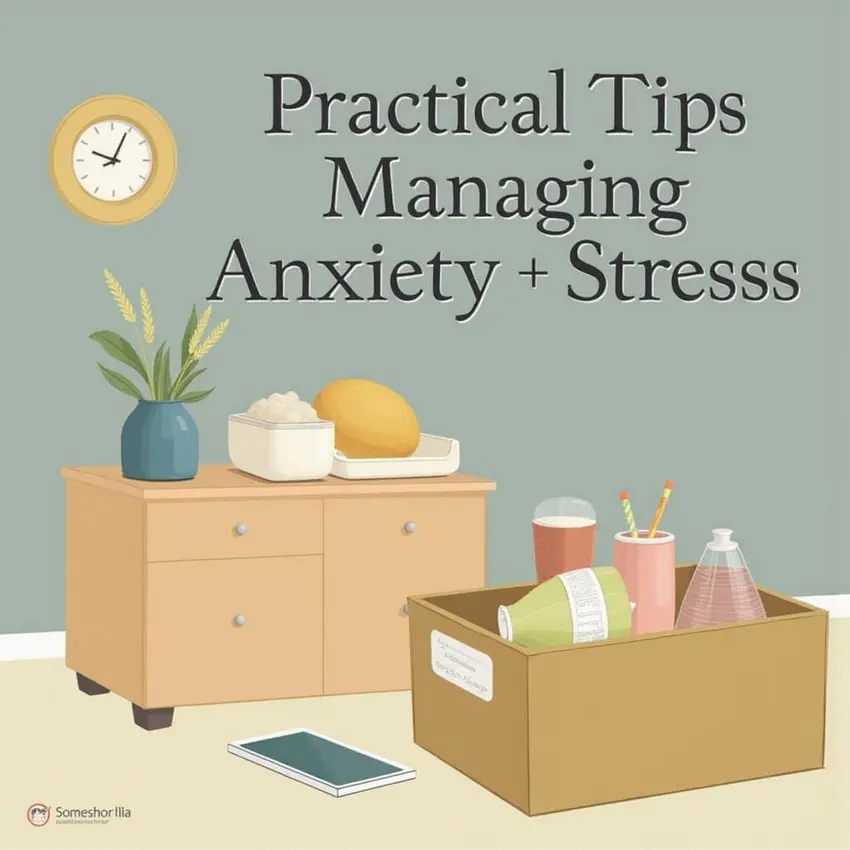Practical Tips for Managing Anxiety and Stress
Anxiety and stress are common experiences that everyone faces at some point in their lives, often stemming from work, family, or personal relationships. Managing these feelings is crucial for maintaining your overall well-being. This blog post aims to provide practical tips that can help you cope with anxiety and reduce stress in your daily routine.
One of the first steps to managing anxiety and stress is understanding their origins. By identifying triggers, you can take proactive steps to address them. For some, anxiety might be related to work deadlines, while for others, it could stem from personal relationships or financial concerns. Keeping a daily journal can assist in recognizing patterns and triggers. Once you’ve identified what causes you stress, consider whether these issues can be resolved or approached differently.
Practice Mindfulness and Meditation
Mindfulness involves focusing on the present moment and being aware of your thoughts and feelings without judgment. Techniques such as meditation can help center your mind and alleviate anxiety. Try setting aside 10-15 minutes each day to practice mindfulness or meditation. There are numerous apps available that offer guided meditations tailored for anxiety and stress reduction.
Breathing Exercises
Deep, controlled breathing can significantly affect your stress levels. When feeling overwhelmed, take a moment to pause and engage in some breathing exercises. One effective technique is the 4-7-8 breathing method: breathe in for 4 seconds, hold for 7 seconds, and exhale slowly for 8 seconds. This technique not only calms the mind but also helps lower heart rates and blood pressure.
Regular Physical Activity
Engaging in regular physical exercise is another powerful way to combat anxiety and stress. Exercise releases endorphins, which are natural mood lifters. Aim for at least 30 minutes of moderate physical activity on most days. This activity doesn’t have to be intense; it could include walking, cycling, dancing, or even doing yoga. Find an activity you enjoy, and it will be easier to maintain consistency.
Maintain a Healthy Lifestyle
A balanced diet can play a significant role in how we feel. Consuming whole foods rich in vitamins and minerals can support your mental health. Stay hydrated and limit caffeine and sugar intake, as they can intensify feelings of anxiety and stress. Consider incorporating more fruits, vegetables, lean proteins, and whole grains into your meals.
Set Boundaries
Overcommitting is a common source of stress. Learning to say no and set boundaries is essential for your mental health. Whether it involves work commitments, personal obligations, or social activities, it’s vital to recognize your limits. Give yourself permission to step back from situations that contribute to your anxiety. Prioritize self-care and make sure to carve out time for yourself.
Connect with Others
Isolation can exacerbate feelings of anxiety and stress. Make an effort to stay connected with friends and family, as these relationships can provide support and comfort. Don’t hesitate to reach out to someone you trust when you’re feeling overwhelmed. Sharing your thoughts and feelings can help lighten your emotional load. Additionally, consider engaging in community activities or support groups where you can connect with others experiencing similar challenges.
Limit Media Consumption
In today’s digital age, constant exposure to news and social media can contribute to heightened anxiety and stress levels. Keeping abreast of current events is important, but it’s equally essential to find balance. Designate specific times for checking news updates and social media—limiting your exposure can help maintain a calmer mindset. Consider curating your news sources to focus on more positive or uplifting content.
Seek Professional Help
If your anxiety and stress become overwhelming or interfere with your daily life, seeking help from a mental health professional can be beneficial. Therapy offers a safe space for individuals to explore their feelings and learn coping strategies tailored to their specific needs. Remember, it’s okay to ask for help when you need it.
Incorporate Relaxation Techniques
Integrating relaxation techniques into your daily routine can create a calm environment. Practices such as progressive muscle relaxation, visualization, and aromatherapy can be incredibly effective in relieving stress. Experiment with different relaxation methods to discover what works best for you.
In conclusion, managing anxiety and stress is a journey that requires self-awareness, commitment, and practice. By incorporating these practical tips into your daily life, you can develop healthier coping strategies, allowing you to navigate the challenges of life with greater ease.

